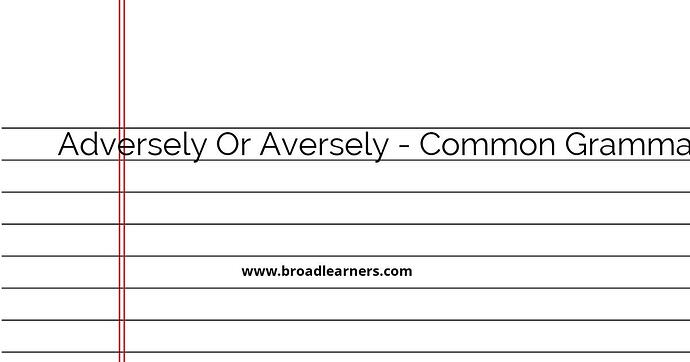'Adversely' and 'aversely' are commonly confused words in English grammar. Understanding the difference between 'adversely' and 'aversely' is important to use them correctly in written and spoken English.
'Adversely' is an adverb that means in a harmful or negative way. It is used to describe the negative impact or effect of something.
'Aversely' is not a commonly used word in English. It is an incorrect form of 'adversely' and is not recognized as a standard word in the English language.
Let's take a closer look at the meanings and usage of 'adversely'.
| 'Adversely' |
|---|
| The word 'adversely' is used to describe a negative impact or effect. |
|
It's important to note that 'aversely' is not a recognized word in English and should not be used in formal or professional writing. If you come across 'aversely' being used, it is likely a spelling error or a misuse of the word 'adversely'.
Here are some examples of correct usage:
- The changes in the market conditions affected the company adversely. (meaning the changes had a negative impact on the company)
- She was advised not to take the medication as it could adversely affect her liver. (meaning the medication could harm her liver)
Remembering the correct usage of 'adversely' will help you avoid common grammar mistakes and improve your communication skills.
